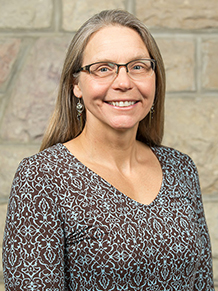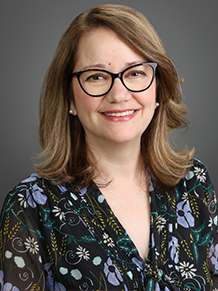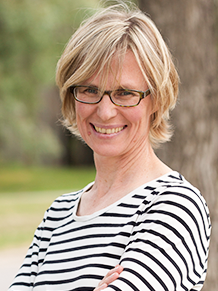Overview
The University of Saskatchewan Health Sciences brings together the strengths of diverse disciplines to advance health through education, research, and community engagement. It serves as a collaborative platform—connecting people, ideas, and infrastructure to support initiatives that span colleges and schools.
The unit plays a key role in supporting coordinated operations in the Health Sciences Building, simulation-based learning, interprofessional education, and strategic research efforts. Its work reflects the university’s commitment to Boundless Collaboration, Inspired Communities, and Meaningful Impact.
Guided by university leadership and supported by a dedicated team of professionals, the Health Sciences helps turn shared priorities into action through collaborative governance. Strategic direction is shaped through joint decision-making by the Joint Governance Council of the Academic Health Sciences (JGCAHS), informed by recommendations from its strategic committees.
The work of the Health Sciences complements—but does not replace—the academic responsibilities of individual colleges and schools. It enables these units to work together while honouring their distinct missions, ensuring that collaborative efforts are well-coordinated, appropriately resourced, and aligned with institutional goals.
The governance model for the Health Sciences is evolving to better support collaboration, shared priorities, and institutional goals. This transition introduces a new Joint Governance Council and updates to committee roles and responsibilities, reflecting a more coordinated approach across health science colleges and units. The FAQ below provides information about what’s changing, what’s staying the same, and how this evolution will support the university’s collective mission.
What is the Joint Governance Council of the Academic Health Sciences (JGCAHS)?
The JGCAHS is the new governance body that will guide strategic direction for the Health Sciences at USask. It will oversee shared priorities such as space, the Clinical Learning Resource Centre (CLRC), collaborative research, shared teaching, interprofessional education, Indigenous and EDI (equity, diversity, and inclusion) initiatives, and building operations. The council is co-chaired by the provost and vice-president academic, and by the vice-president research.
What is the reason for this transition?
This shift will strengthen the Health Sciences’ ability to advance the aspirations of University Plan 2025 — from Productive Collaboration and Distinguished Learners to Transformative Decolonization Leading to Reconciliation. With clearer governance, strategic alignment, and a renewed focus on shared infrastructure, the unit will be even better positioned to implement priorities and deliver greater collective impact across the university and beyond.
Will this change affect my current role or responsibilities as a Health Sciences employee?
No. This is a governance evolution — not a restructuring. No positions will be eliminated, and day-to-day operations will continue as usual.
Will services or supports change during this transition?
No. All services, supports, and points of contact within the Health Sciences unit will continue as usual throughout the transition.
Who will be represented on the JGCAHS?
The JGCAHS will include representation from health science units located within and outside of the Health Sciences Building. This participation will be proportionate to their involvement in academic, research, and operational activities, and will be facilitated through mechanisms such as council committees, Health Sciences advisory groups, and other collaborative structures.
When will the new governance model take effect?
The transition to the new governance model is already underway as of Aug. 6, 2025. Updates involving committees and the results of the candidate search for the new director role will be shared as they are confirmed.
What does this governance change mean for committees and subcommittees?
Some committees and subcommittees will be reviewed to ensure they reflect shared and collaborative priorities. The JGCAHS will begin looking at their composition and mandates to support alignment across health sciences units and broader institutional goals. Any updates will be shared in advance, with opportunities for input and engagement.
How will this affect collaboration across colleges and schools?
The new governance model is designed to strengthen collaboration by aligning shared priorities and improving co-ordination across health science units. It supports joint decision-making while respecting the autonomy of each college and school.
Will I need to do anything differently?
No immediate changes are required. Day-to-day operations, services, and points of contact remain the same. Any future updates will be communicated clearly and well in advance.
Who can I contact if I have questions or want to learn more?
For more information or to share feedback, please contact: healthsciences.general@usask.ca
Leadership
Leadership of the Health Sciences unit is provided through a collaborative governance model. The Joint Governance Council of the Academic Health Sciences (JGCAHS) guides strategic direction for shared priorities such as:
- Space and infrastructure
- The Clinical Learning Resource Centre (CLRC)
- Collaborative research
- Shared teaching
- Interprofessional education
- Indigenous and equity, diversity and inclusion (EDI) initiatives
- Building operations
The JGCAHS is co-chaired by the provost and vice-president academic and the vice-president research, and includes representation from deans and executive directors of health science colleges and schools.
The council is supported by the director, academic health sciences, who oversees a team responsible for implementing council decisions and managing shared resources across the unit. This includes coordination, communications, and operational support for initiatives such as simulation-based learning, research infrastructure, and building services.
JGCAHS membership
Co-chaired by the provost and vice-president academic, and the vice-president research, the Joint Governance Council of the Academic Health Sciences (JGCAHS) is comprised of the following members:
Committees
NOTE: The Health Sciences governance model is currently undergoing formal updates. Existing organizational charts, committee structures, and leadership references may reflect legacy information. Revised details will be published once all formal approval processes have concluded. Some elements remain under development. Committee composition and mandates will be reviewed by the JGCAHS. Changes will be communicated clearly and well in advance with opportunities for input and engagement.
The College of Medicine Indigenous Health Committee is comprised of faculty, staff, and community members who are dedicated to Indigenous health. The IHC exists to strengthen culturally-based linkages between Indigenous world views and the medical community.
The Research Advisory Committee (RAC) provides guidance and advice on research issues that arise locally, nationally, and internationally.
The RAC engages in strategic planning to advance health sciences research that aligns with institutional priorities and strengthens partnerships with key stakeholders including health regions, government ministries, funding agencies, and community groups.
Reporting to Health Sciences Research Advisory Committee (RAC), and advisory to the Associate Provost, Health, the Health Sciences Research Cluster Leaders Committee (RCLC) provides guidance and advice on research issues arising from the health sciences research clusters.
The Health Sciences Research Space Governance Committee (RSGC) provides guidance pertaining to research space, research administrative office space, and other research space allocation and usage issues that arise within the University of Saskatchewan (USask) Health Sciences Building.
The RSGC engages in strategic planning to advance health science research that aligns with institutional priorities and strengthens partnerships with key stakeholders.
The Health Sciences Programs Advisory Committee (PAC) provides oversight to educational programs that span departments within the health sciences, including interprofessional education at the University of Saskatchewan.
The PAC is accountable and responsible for the oversight of the identification, prioritization, implementation, coordination, and evaluation of cross-departmental or school health science initiatives and issues that are relevant to the continuum of interprofessional education in the health sciences, and programming that is common to at least two of the participating health science colleges and/or programs.
The Interprofessional Education Curriculum Committee (IPECC) is responsible for the development of a curriculum framework for interprofessional education (IPE) in the health sciences at the University of Saskatchewan. Once a framework is developed and approved by PAC, the IPECC will work with the PAC to implement, evaluate, and maintain the IPE curriculum across disciplines and programs within and across all provincial instructional sites. The Committee will also develop recommendations concerning IPE and related policies and procedures for consideration by the Interprofessional Education Advisory Committee.
Under the leadership of one of the participating program leads, the IPECC will direct the IPE Framework at the University of Saskatchewan, grounded in evidence-informed best practices.











